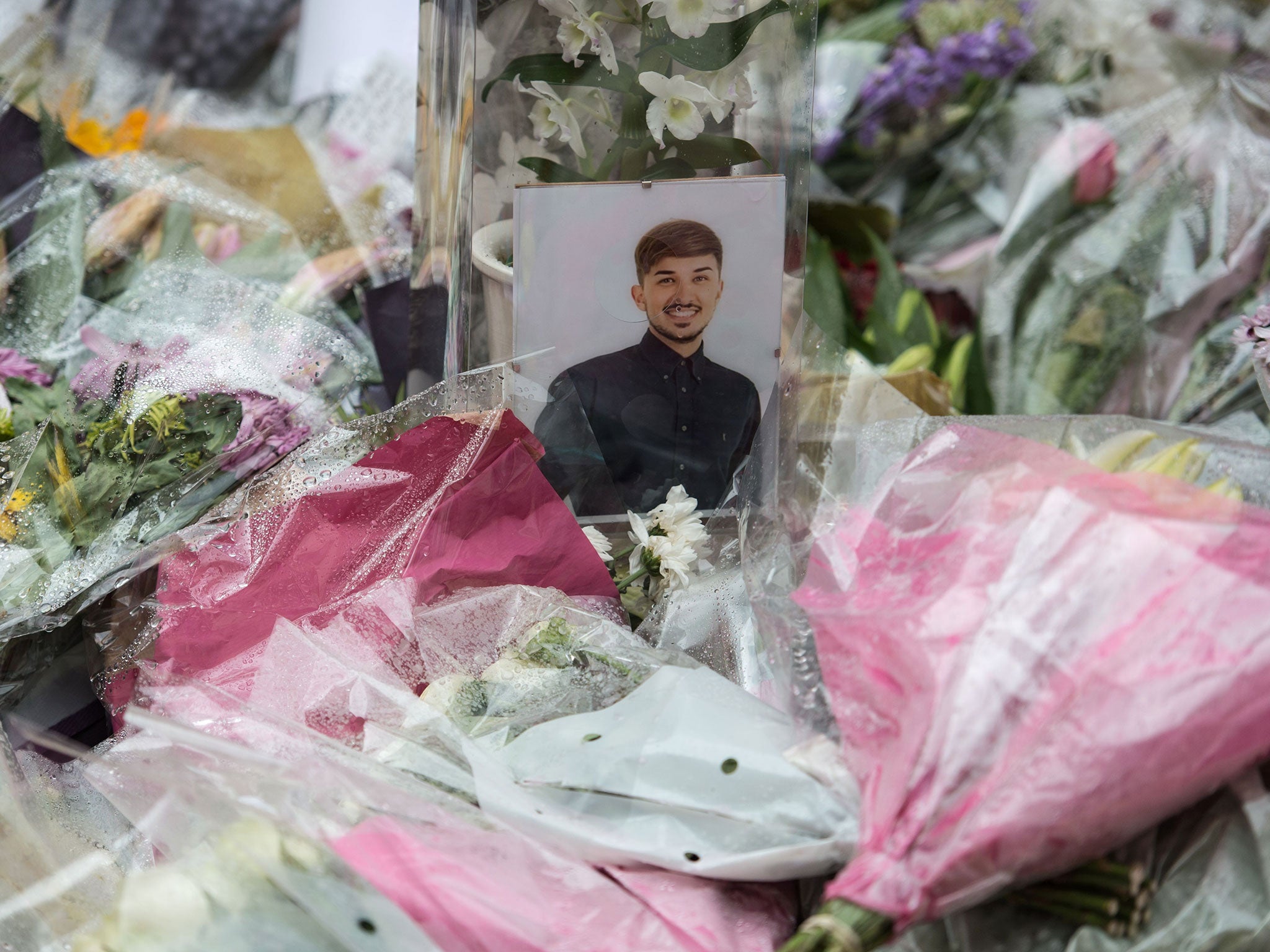Manchester Arena attack victim's mother calls for mandatory metal detectors and bag searches at venues
Thousands sign petition to make improved security a legal requirement

The mother of a victim of the Manchester attack is calling for new laws to ensure large venues are protected by metal detectors.
Figen Murray’s son, Martyn Hett, was among 22 people killed when an Isis supporter blew himself up at Manchester Arena.
Salman Abedi was able to enter the venue’s foyer during an Ariana Grande concert carrying a suicide bomb packed with metal shrapnel undetected, without going through security checks.
He killed victims as young as eight when he detonated it as thousands of people poured out of the concert on 22 May 2017.
The atrocity – one of five terror attacks that struck the UK in 2017 – sparked calls for increased security at entertainment venues and public events across the UK.
Ms Murray said she assumed searches would be brought in nationwide, but went to a concert where bags and tickets were not being checked.
She is calling for a new law to force all large-scale venues to introduce metal detectors and mandatory bag searches for all attendees.
“I wrongly assumed that since this tragedy event organisers have significantly increased security checks,” she wrote in a petition to the British government, saying that the picture nationwide was “patchy”.
“Some places do checks, some have metal detectors, some open doors at the interval for smokers, but then anyone can walk in from the street. There are some good examples too, but on the whole there is a feeling of unease about lack of security. This needs to be standardised as a legal obligation, not a discretionary choice.”
Ms Murray’s petition has so far been signed by more than 6,000 people, and will receive a government response if it passes the 10,000 mark.
“The more people who sign the petition, the better,” she said. “I’m determined to go to the very top with this. We shouldn’t have to wait for another terrible event to happen to start taking this issue seriously.
“It’s too late for me – I’ve lost my child – but I’m committed to doing all I can to stop other families having to go through the nightmare that we are.”
Ben Wallace, the security minister, said the government was keeping protective security arrangements "under constant review".
“We are determined to do what it takes to keep the public safe," he added. “Police counterterrorism security advisers, based around the country, offer security guidance and training to the owners and operators of crowded places such as concert venues and stadiums to ensure they know the measures they should take in their venues to keep the public safe.
“We also work closely with industry to develop new and innovative screening technologies for use in crowded places.”
Manchester Bombing Attack: one year on
Show all 10The campaign follows a report into the attack by the Intelligence and Security Committee, which suggested that counter-terrorism training could be provided to qualified stewards at venues like the Arena.
MPs found that security services missed a potential opportunity to prevent the bombing by intercepting Abedi when he returned from Libya days before the blast.
The report said that Abedi and his brother Hashem may have been radicalised by their father, who supported rebels in the Libyan civil war. However, no members of the family were referred to the Prevent scheme.
A separate review found that security services dismissed two pieces of intelligence that could have helped them stop the Manchester attack.
Abedi was not monitored during trips to Libya, despite appearing on MI5’s radar multiple times over links to other terrorists who were under investigation, and visiting an extremist in prison, the report found.
He became a “subject of interest” in 2014 and intelligence that he supported Isis was received, but the report said MI5 did not actively investigate him partly because of the “view that he would not pose a threat in the UK”.
The response to the blast was also criticised after it emerged that first aid-trained firefighters did not respond for two hours because they wrongly believed a gunman was on the loose.
Lord Kerslake, the former head of the civil service, praised “individual acts of bravery and selflessness” by emergency services and the public but said communication failures delayed vital parts of the response.
Subscribe to Independent Premium to bookmark this article
Want to bookmark your favourite articles and stories to read or reference later? Start your Independent Premium subscription today.

Join our commenting forum
Join thought-provoking conversations, follow other Independent readers and see their replies